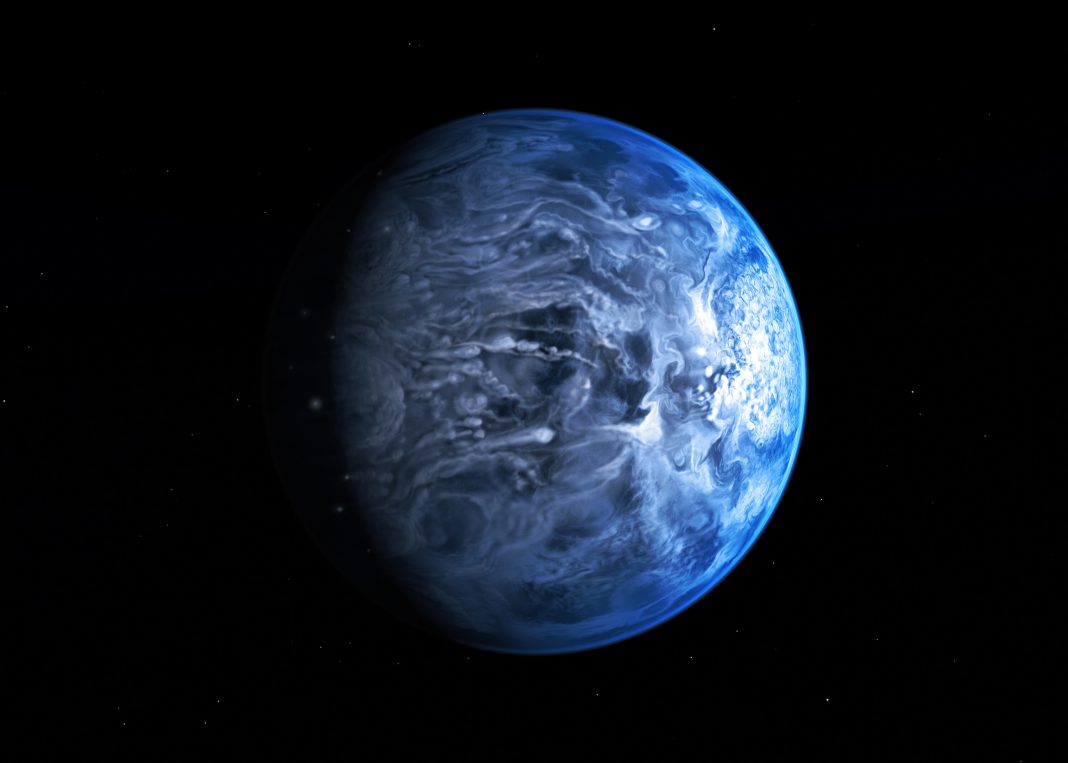A new exoplanet’s been discovered that’s bigger than Jupiter but with an extremely low mass, causing astronomers to nickname it the ‘puffy planet’. With a density similar to that of Styrofoam, the puffy planet’s real name is KELT-11b and it’s located around 320 light-years from Earth. According to experts it’s the third lower density planet we know about and researchers are hopeful that further test will reveal more about how such odd exoplanets evolved.
Astronomer Joshua Pepper from Leigh University in Pennsylvania said, “It is highly inflated, so that while it’s only a fifth as massive as Jupiter, it is nearly 40 percent larger, making it about as dense as Styrofoam, with an extraordinarily large atmosphere.” As well as the planet’s unusual density, it also stands out for another reason – it’s extreme brightness. The exoplanet‘s host star, KELT-11 is in the process of evolving into a red giant, so it’s currently using up its nuclear fuel and creating a shell of hydrogen on the outer core. Experts predict that within the next 100 million years or so the host star will engulf KELT-11b completely as it continues to expand.
However, before that happens astronomers intend to make the most of its presence by carrying out more experiments. But detecting KELT-11b was not as easy as they were hoping. Because KELT-11 is so bright it masks KELT-11b and as a result was almost missed, even when using the KELT (Kilodegree Extremely Little Telescope). “This discovery was very challenging. The original KELT observations of the star – its light curve – showed only a hint of the transit,” said Pepper. “Because the transit is both shallow (a little under 0.3 percent change in brightness) and long, it was very difficult to obtain reliable, complete confirmation observations.”
Moving forward the scientists will look to uncover more about these Styrofoam type planets and what makes them the way they are. “We think that KELT-11b will be a great test case to help us understand the mechanism that causes inflated planets,” says Pepper. “Furthermore, since the host star has evolved onto the sub-giant branch and is reaching the end of its life, we hope that we can study the behavior of planetary systems at the end-stage of their star’s lifetime.”
KELT-11b is an exoplanet orbiting around the yellow subgiant star KELT-11 about 320 light-years away from Earth. It is an inflated planet, one of the “puffiest planets” known. It has a radius 1.37 times that of Jupiter, but only 19% of its mass. It was discovered in 2016.
Related Links;
- Scientists Have Discovered a ‘Puffy’ Exoplanet With The Density of Styrofoam
- KELT-11b: A Highly Inflated Sub-Saturn Exoplanet Transiting the V = 8 Subgiant HD 93396
- New ‘styrofoam’ planet provides tools in search for habitable planets
More News to Read











